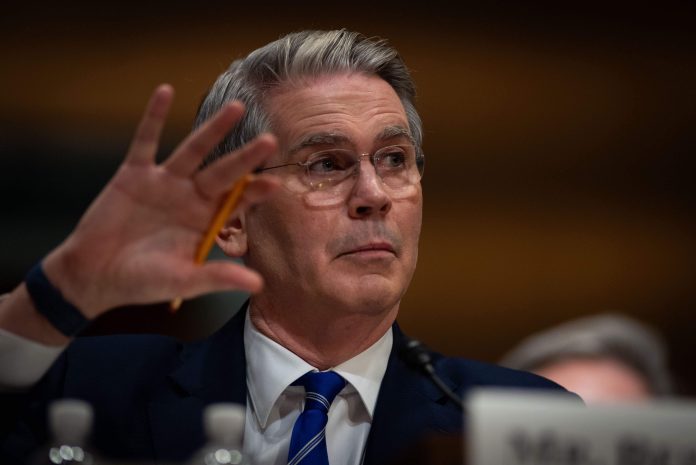Washington considers a 15% levy on China-generated revenues for more tech giants, amid soaring national debt
Soldecanarias.net / International Desk
Tensions between the United States and China have entered a new phase. Treasury Secretary Scott Bessent has announced that the controversial deal struck between the Trump administration and tech giants Nvidia and AMD could soon become the blueprint for other major American companies operating in China.
In an interview with Bloomberg Surveillance, Bessent hinted that the mechanism under which the companies hand over 15% of their China-related revenues from advanced chip sales to the U.S. government may be applied to other strategic sectors. “We’ve got the model, we’ve got the beta test… why not expand it?” he said, emphasizing that American taxpayers should also benefit from access to the Chinese market.
The move has triggered alarm bells on Wall Street. Financial analysts and corporate executives warn that such a fiscal framework could significantly impact profit margins, increase regulatory uncertainty, and escalate geopolitical tensions.
More Than a Tax: A Geopolitical Strategy
Essentially, this new model turns the U.S. government into a “forced partner” for companies exporting to China in key tech sectors. For Nvidia and AMD, the 15% levy was the price for maintaining export licenses for high-end AI chips a product in high demand in the Chinese market.
According to Bessent, the concept was crafted by Donald Trump himself as a “creative solution” allowing these firms to keep doing business in China without surrendering tech control. “It’s not just about money it’s about ensuring the global standard in artificial intelligence doesn’t become Chinese,” he stressed.
Economic Pivot Amid Mounting Debt
The announcement comes at a time when the U.S. is facing another critical front: surging public debt, which has now topped $37 trillion. Against this backdrop, Bessent has openly called for the Federal Reserve to start an aggressive rate-cutting cycle, beginning with a 50-basis-point cut in September.
“Money is too expensive. We need to ease rates by 150 to 175 basis points to boost both the real economy and the markets,” he said the most direct appeal yet from Trump’s top economic advisor to the central bank.
The data backs his urgency: in 2024 alone, the U.S. spent nearly $900 billion on interest payments, more than it spent on the Pentagon or Medicare.
A Model That Could Reach Europe and Asia
The ripple effects of this policy are being felt far beyond the Pacific. International analysts warn that this approach may trigger retaliatory measures, with other governments potentially adopting similar fiscal frameworks to defend their national industries. In Brussels, Seoul, and Tokyo, the “Nvidia model” is already being scrutinized.
In this context, the model is more than a tax tool it signals a new phase in the global economic power struggle, one in which the state reclaims a central role in regulating outbound trade from tech superpowers.



